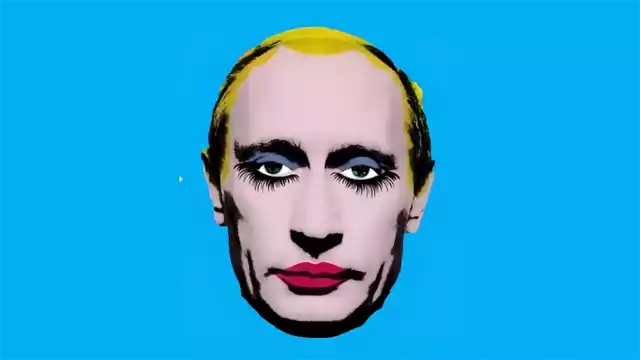For centuries, Russians have taken pride in the size of their country while at the same time having no idea what to do with all that natural wealth. And while Russia beats its brains out trying to come up with an answer, its neighbors look on with suspicion and fear.
At the same time, Russians have never understood why others fear them: After all, it is not their fault that God made them big, and not small. They have trouble imagining the psychology of the Baltic peoples, for instance, when their own country stretches from Eastern Europe to the Pacific Ocean.
And Russians, not even realizing they might offend someone, take delight in expressing the area of the Tyumen region in terms of how many Hollands it can hold or by announcing that the Sakha republic is big enough to contain a certain number of Belgiums.
There was a widespread misconception during Soviet times that Russia was frightening only because it was communist, but recent history has debunked that myth. As it turns out, that huge area on the map continues to dominate its neighbors, and I assure you that, even after President Vladimir Putin's career eventually dries up, Europe's fear of Russia will remain like sediment that settles to the bottom of a cup.
As a historian, I can even say precisely when the West's fear of Russia began. Even before the birth of Peter the Great, his future pal and scholar Gottfried Wilhelm Leibniz attempted to eliminate the conflicts between the great European powers by offering a peace plan granting each its own zone of expansion. According to that plan, Russian territory went to Sweden, regarded at the time as a great power.
That plan might have been fairly good for Europe, but it failed to anticipate the birth of Peter the Great, who managed to transform Russia into a great power and Sweden into an ordinary one in just a single generation — that is, at lightning speed by historical standards.
That rapid and unexpected rise sparked the fear of a "Russian threat," a fear that continued to exist throughout both the tsarist autocracy and Soviet era and that I am certain will continue as long as Russia wears size 10XL clothes.
Of course, the enormity of the country has its advantages: The natural resources alone are priceless. And while there are some problems associated with Russia's multiethnic population, it also enriches the country's culture and gene pool. What's more, Russia's great size has saved it more than once, as it did during Napoleon's invasion and the two World Wars.
However, that size does not come without problems. The famous Russian General Yakov Kulnev, who first beat the Swedes and the Turks, and later the French in 1812, once joked: "Mother Russia is great because someone is always fighting somewhere there."
As a more peace-loving man, I do not share his joy over this fact, but I do admit it is true: Some part of the country is always in disarray. This is not Monaco. No matter what political or economic system it has, Russia will never manage to make every last flowerbed picture-perfect or mow every lawn, much less plant a lawn in the first place.
But Russia's size can also be inspiring. I once took a boat from Moscow to Astrakhan and had a very nervous fellow passenger — a retired and elderly Japanese teacher of Russian who had decided to finally see this country for the first time.
I had to constantly keep an eye on him so that, in his excitement, he would not accidentally fall overboard. He had never seen such vast, untouched expanses of land before and, indeed, we sailed for miles without sighting a single human soul or sign of life ashore. The elderly Japanese man watched it all in a state of disbelief and amazement.
The collapse of the Soviet Union reduced the size of the country but created a host of other problems. The main problem, however, is that no Russian leader, past or present, has known what to do with their glorious ancestral heritage, short of just getting rid of it. There was a time when Russia withdrew its claim to the Hawaiian Islands — yes, it's true — and sold Alaska. And even President Vladimir Putin has made concessions to China over disputed islands on the Amur River.
It is no easy task losing weight, and only rarely does someone actually pull it off properly.
Pyotr Romanov is a journalist and historian.
A Message from The Moscow Times:
Dear readers,
We are facing unprecedented challenges. Russia's Prosecutor General's Office has designated The Moscow Times as an "undesirable" organization, criminalizing our work and putting our staff at risk of prosecution. This follows our earlier unjust labeling as a "foreign agent."
These actions are direct attempts to silence independent journalism in Russia. The authorities claim our work "discredits the decisions of the Russian leadership." We see things differently: we strive to provide accurate, unbiased reporting on Russia.
We, the journalists of The Moscow Times, refuse to be silenced. But to continue our work, we need your help.
Your support, no matter how small, makes a world of difference. If you can, please support us monthly starting from just $2. It's quick to set up, and every contribution makes a significant impact.
By supporting The Moscow Times, you're defending open, independent journalism in the face of repression. Thank you for standing with us.
Remind me later.






